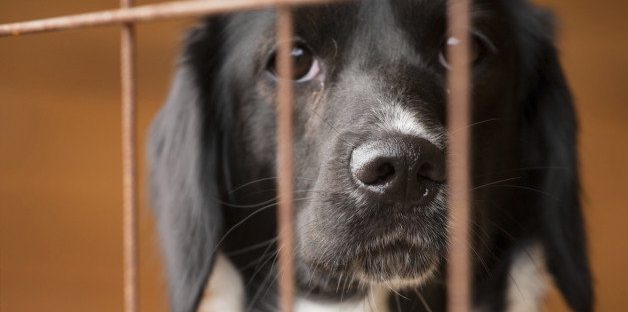We love a good holiday as much as anyone but there are a few throughout the year that make us particularly excited. One of those holidays is celebrated this week — National Adopt a Shelter Pet Day! Pets are such a vital part of any family adding unconditional love, companionship, and support. Any day dedicated … Continue reading National Adopt a Shelter Pet Day
Lucky & Unlucky Pets
Pets can be expensive. The Tibetan Mastiff [...] has an average purchase price of $3,000, while the Portuguese water dog costs $2,500, and the Black Russian Terrier goes for $2,000. This, combined with the yearly cost of ownership—up to $1,843 on average for dogs and $1,035 for cats, according to the ASPCA—indicates most pet owners … Continue reading Lucky & Unlucky Pets
America’s Fascination with Cats
Last month, I was watching my hometown baseball team, the Arizona Diamondbacks, play the San Francisco Giants, [a]nd when it came time to throw out the first pitch, it was thrown out by Grumpy Cat, an Internet celebrity cat known for her grumpy facial expressions. [...] This is not the first time a cat has … Continue reading America’s Fascination with Cats
For the Love of Animals
While on Valentine’s Day, we show our love for other humans, February 20th is “National Love-Your-Pet Day,” where we turn to our four-legged friends to show them how much we love having them around. The Humane Society estimates there are 67 million [U.S.] households that have pets. [...] The pet industry made $58 billion in … Continue reading For the Love of Animals
Brother, Can You Spare a Milk-Bone®?
The effort in the recent Colorado floods shows our rescue missions for animals have come a long way since the pet loss disaster caused by Hurricane Katrina in New Orleans, where people would not evacuate for fear of leaving their pets. CBS reported that some helicopters rescuing people in the Colorado flooding carried more dogs, … Continue reading Brother, Can You Spare a Milk-Bone®?
From Pit Bulls & Parolees to the Dog in Your House, April is Their Month
“Did you know April has more pet-awareness events than any other month? [There are more than] 10 national events, including ASPCA's Prevention of Animal Cruelty and the Red Cross Pet First Aid Awareness. Why do we care so much about our pets for us to celebrate them in so many different ways in just one … Continue reading From Pit Bulls & Parolees to the Dog in Your House, April is Their Month
Pet Care: Why Don’t We Care Every Month of the Year?
April has more pet-awareness events than any other time of year. It is the ASPCA’s Prevention of Cruelty to Animals Month, [the] American Red Cross’ National Pet First Aid Awareness Month, National Heart-worm Awareness Month, National Animal Control Officer Appreciation Week, National Pet ID Week, National Kids and Pets Day, National Hairball Awareness Day, World … Continue reading Pet Care: Why Don’t We Care Every Month of the Year?
Who’s Your Best Friend?
We at DollarDays noticed this year on our Facebook page that every time we posted a picture of a dog or cat, it was shared five times more than any other picture we posted. In this modern world of us all moving in so many different directions at such a high speed, why do people … Continue reading Who’s Your Best Friend?
The Best Therapist You Ever Met
October is "Adopt-a-Pet-Shelter Month," and, as far as I am concerned, we should be celebrating this every month of the year. According to the Humane Society, animal shelters care for up to eight million dogs and cats every year and euthanize around four million animals. Today, there are more than 135 million dogs and cats … Continue reading The Best Therapist You Ever Met


